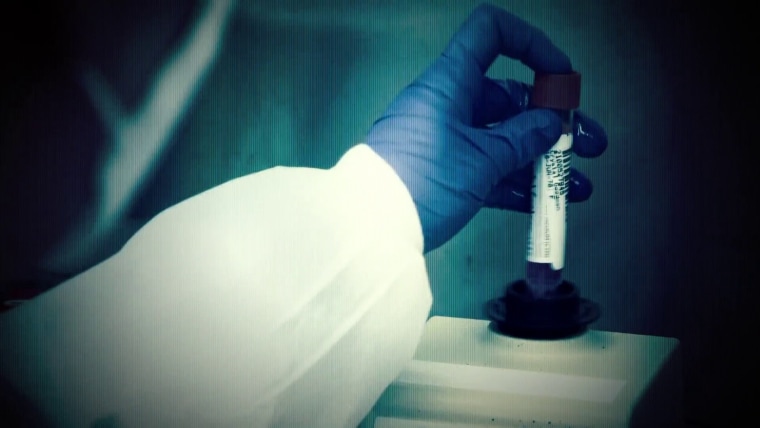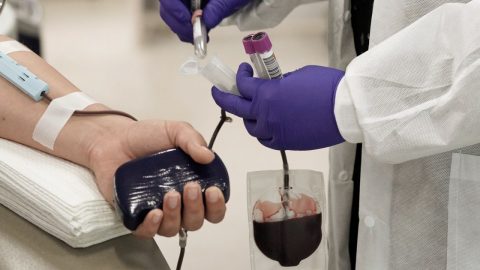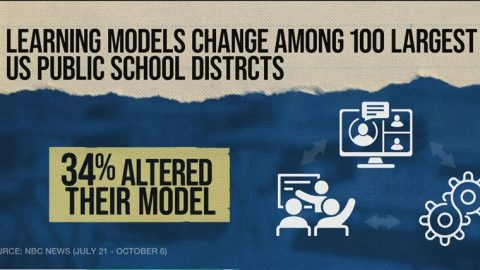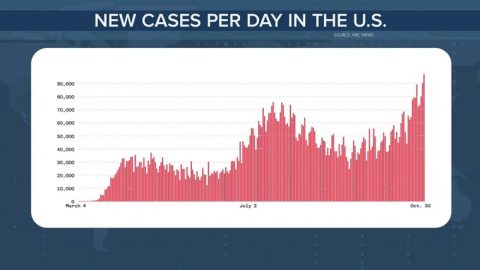The coronavirus isn’t the only pathogen that can cause symptoms that last months, or even years, after an initial infection is overcome, a new study published Friday in The Lancet’s eClinicalMedicine suggests.
In an analysis of data from 10,171 U.K. adults, the researchers found evidence of a “long cold” syndrome that can follow infection with a variety of common respiratory viruses, including common cold viruses and influenza.
While some of the symptoms of long Covid and long colds overlapped, the study noted that people with long Covid were more likely to continue to experience lightheadedness, dizziness and problems with taste and smell; lingering long cold symptoms were more likely to include coughing, stomach pain and diarrhea.
Experts said the new research could help shine a light on the types of long-lasting symptoms that come after recovery from an illness, including chronic fatigue syndrome.
“These syndromes are not a new phenomenon, but existing research has largely focused on people who survived a severe infection, often having been hospitalized,” said the lead author, Giulia Vivaldi, a statistician and epidemiologist at Queen Mary University in London. “The emergence of long Covid has shown us that people can be burdened with long-lasting symptoms regardless of the severity of their own infection, and our findings suggest that this may not be unique to SARS-CoV-2.”
A study published this year found that the percentage of patients who developed a “long flu” syndrome after having caught influenza was similar to that of patients who developed long Covid after SARS-CoV-2 infections.
It’s not yet clear why some people develop long-lasting symptoms after infections, Vivaldi said in an email. The study suggests that more severe illness — whether from Covid or other respiratory infections — can increase a person’s risk of long illness. But, she added, “we know that this isn’t the only driver of risk in long Covid, and so may not be the only driver of ‘long colds’ either.”
To take a closer look at whether respiratory viruses other than Covid might cause syndromes similar to long Covid, Vivaldi and her colleagues turned to a dataset called COVIDENCE UK, an ongoing population-based observational study of Covid-19.
The researchers focused on participants not vaccinated against Covid who filled out a questionnaire in early 2021 about respiratory illnesses and long-lasting symptoms. Around 13% of the people in the study had been diagnosed with Covid at least four weeks before, and another 4.6% had been diagnosed with non-Covid acute respiratory infections, such as influenza, common cold, bronchitis, tonsillitis, pharyngitis and ear infection.
People were more likely to develop post-infection syndromes if they had more severe symptoms during their initial infections, but long-lasting symptoms could develop even in those with milder courses of illness, the researchers found.
What leads to lingering symptoms?
The new findings are a “step forward, showing that Covid is not alone in causing long-lasting symptoms,” said Dr. William Schaffner, a professor of infectious diseases at the Vanderbilt University Medical Center in Nashville, Tennessee.
The study is “rigorous and large,” Schaffner said, adding that the findings might help researchers better understand how people develop post-infection syndromes, including chronic fatigue syndrome.
“No viral culprit has been identified yet as a cause for chronic fatigue syndrome, but I have high hopes we will learn something useful,” he added. “People are looking for inflammatory markers that might indicate an immune response overreaction. Find those and then you can work back to see how a virus triggers that response.”
Long Covid research may offer a unique opportunity to help scientists better understand what leads to long-lasting symptoms in those who’ve developed post-infection syndromes related to other viruses and bacteria, said David Putrino, a professor of rehabilitation and human performance at the Icahn School of Medicine at Mount Sinai in New York.
That’s both because so many people have developed long Covid and because it gives researchers a clear example of a virus’ leading to long-lasting symptoms, Putrino said.
Neither Schaffner nor Putrino were involved with the new research.
Putrino has been involved with long Covid research since reports of lingering symptoms in Covid patients first emerged early in the pandemic. Last month, he co-authored a study, published in the journal Nature, identifying immune system differences in the blood of people who have long Covid and those who don’t.
A number of factors probably determine whether a post-infection syndrome develops, including genetics, the type of pathogen and whether a person was in good physical health before having encountered the pathogen, Putrino said.
Dr. Stuart Ray, a professor of medicine and infectious diseases at the Johns Hopkins University School of Medicine in Baltimore, said the exact details of what goes wrong and triggers a post-infection syndrome haven’t been worked out yet.
Most doctors, however, have seen patients with those kinds of long-lasting symptoms after acute infections, Covid or otherwise, said Ray, who wasn’t involved with the new research.
“It’s not an uncommon pattern,” he said.
Studies like this one, Ray said, make a good case for doing what you can to avoid being infected in the first place.
“It’s good to be aware that there can be long-term consequences from these infections,” he said.
Follow NBC HEALTH on Twitter & Facebook.









Recent Comments